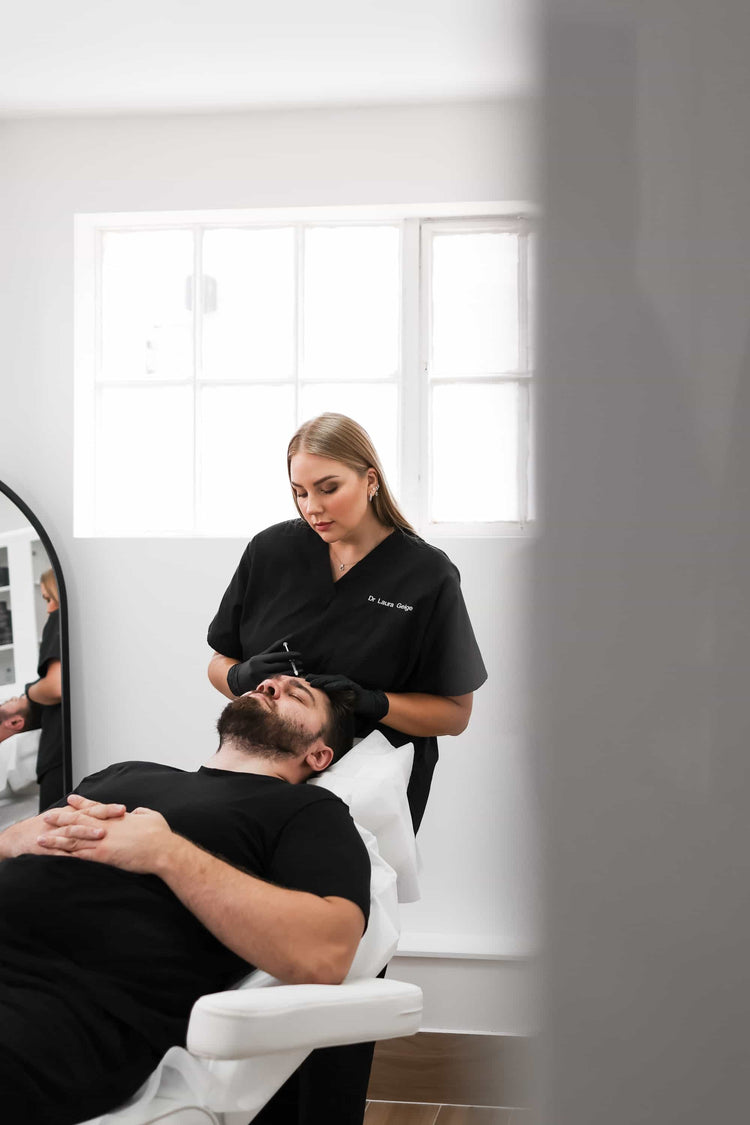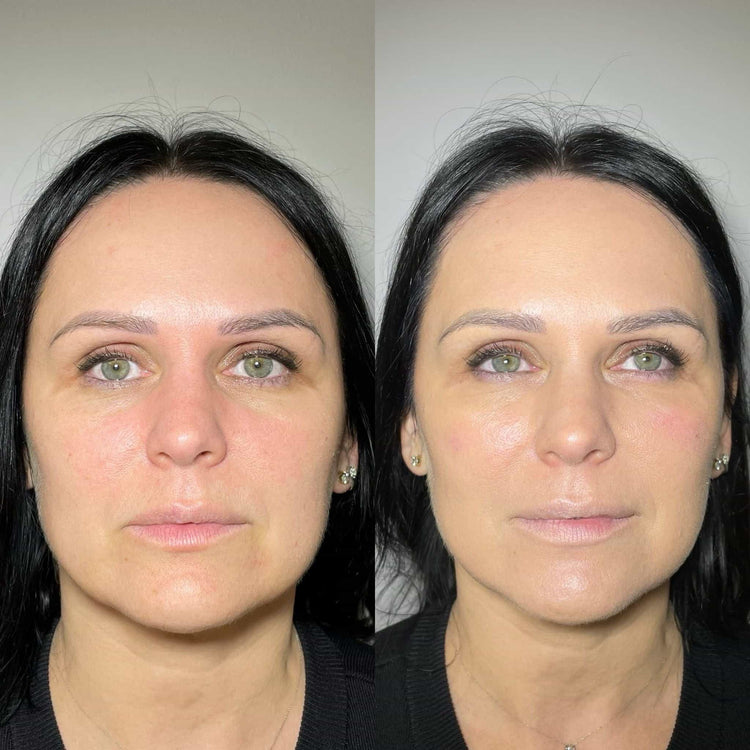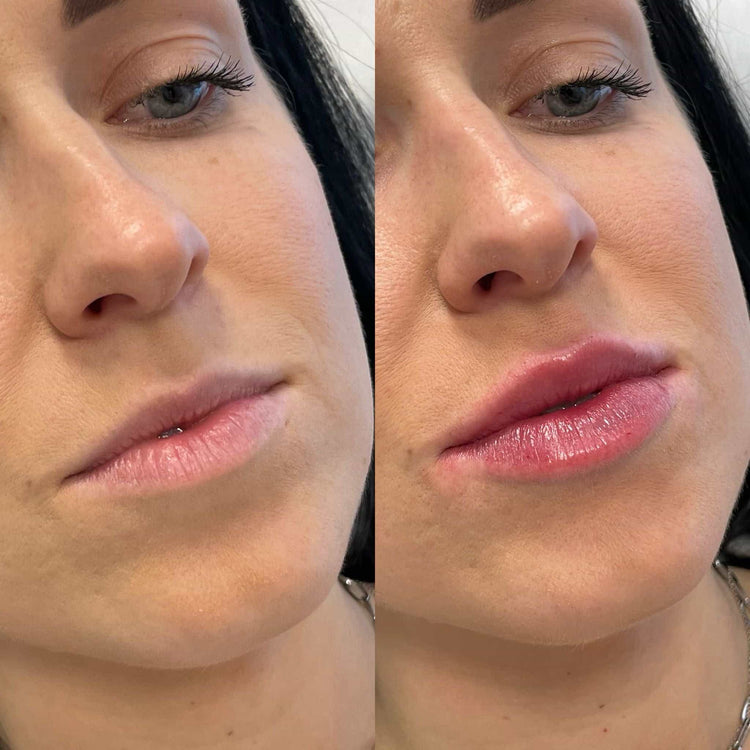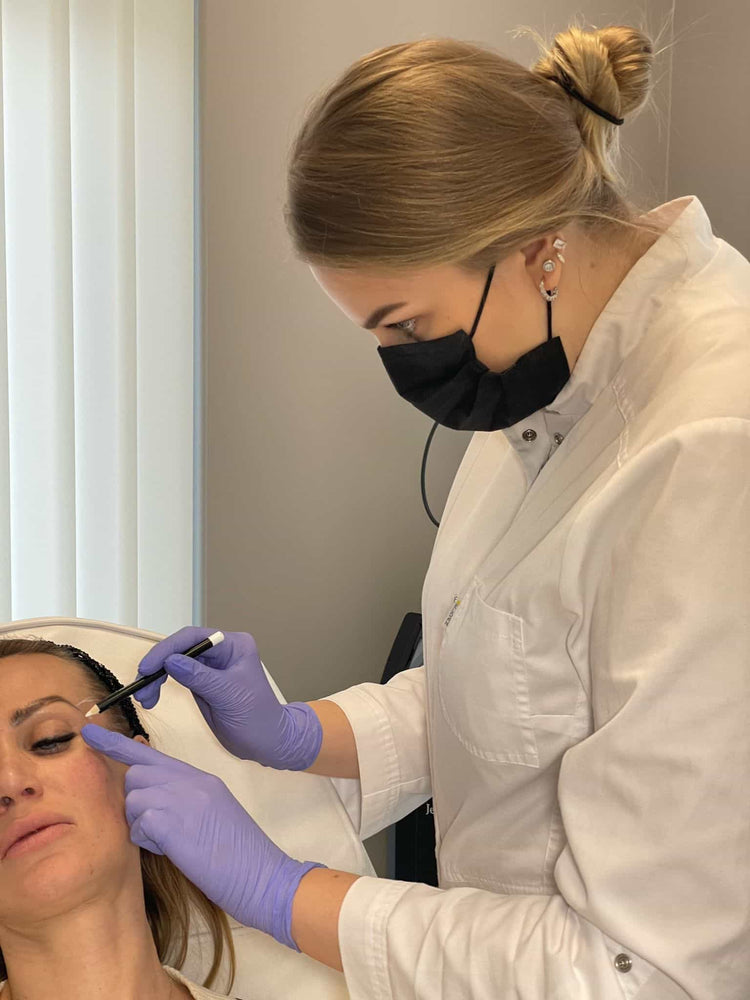Acne Scar Treatment Options

Acne scars can be a persistent reminder of past breakouts, impacting self-confidence and skin appearance. Fortunately, advancements in dermatological treatments offer effective solutions for minimizing the visibility of acne scars in Woking, Surrey.
Laser Resurfacing
Acne scars can be a persistent reminder of past breakouts, impacting self-confidence and skin appearance. Fortunately, advancements in dermatological treatments offer effective solutions for minimizing the visibility of acne scars in Woking, Surrey.
Laser resurfacing is one such treatment gaining popularity for its ability to rejuvenate the skin and reduce the appearance of scars.
- Ablative laser resurfacing: This procedure uses a high-energy laser to remove the top layers of the skin, stimulating collagen production and revealing smoother, younger-looking skin.
- Non-ablative laser resurfacing: This gentler approach targets deeper layers of the skin without causing significant damage to the surface. It stimulates collagen production and improves skin texture.
Consulting with a qualified dermatologist in Woking, Surrey, is essential to determine the most suitable treatment plan based on individual needs and scar type.
Chemical Peels
Chemical peels are another effective option for treating acne scars. During a chemical peel, a solution is applied to the skin, causing the outer layers to exfoliate. This reveals fresher, smoother skin underneath and can minimize the appearance of scars.
- Superficial peels: These peels use mild acids like glycolic acid and target the superficial layer of the skin. They are suitable for mild acne scarring and hyperpigmentation.
- Medium peels: Using stronger acids like trichloroacetic acid (TCA), medium peels penetrate deeper into the skin, addressing moderate acne scars and improving overall skin texture.
- Deep peels: The deepest type of peel, often using phenol, is reserved for severe acne scarring. It requires a longer recovery time but can provide significant improvement in scar visibility.
The choice of chemical peel depends on the severity of the scarring and individual skin type.
Microneedling
Microneedling, also known as collagen induction therapy, is a minimally invasive procedure that involves using fine needles to create controlled micro-injuries in the skin. These tiny punctures stimulate the body’s natural healing process, promoting the production of collagen and elastin, which are essential proteins for skin elasticity and firmness.
Microneedling can effectively improve the appearance of various types of acne scars, including rolling, boxcar, and ice pick scars. It helps to fill in depressed scars, reduce their prominence, and improve overall skin texture.
The procedure is typically performed under local anesthesia. A handheld device with tiny needles is gently rolled over the affected area. After treatment, the skin may be slightly red or swollen, but this usually resolves within a few days. Multiple sessions are often required to achieve optimal results.
Dermal Fillers
Dermal fillers can be an effective solution for treating acne scars, particularly those that create depressions in the skin. Fillers are injectables made of hyaluronic acid, a substance naturally found in the body that helps to hydrate and plump up the skin.
During a dermal filler treatment, a qualified practitioner will inject small amounts of filler into the depressed areas of the scar. The filler helps to lift and fill the depressions, smoothing out the appearance of the scar and making it less noticeable.
Dermal fillers provide immediate results that can last for several months, depending on the individual and the type of filler used.
Subcision

Subcision is a minimally invasive procedure that targets deeper acne scars, particularly those with tethering fibers pulling the skin down. During subcision, a needle is inserted under the scar tissue to break up these fibrous bands.
By releasing the tethered skin, subcision allows it to rise upward, improving the appearance of depressed acne scars and creating a smoother surface.
Subcision is often combined with other treatments like dermal fillers or microneedling for optimal results.
Choosing the Right Treatment
Acne scars can significantly impact self-confidence and skin appearance. Fortunately, there are various effective treatment options available in Woking, Surrey, to minimize the visibility of these marks.
Consultation with a Dermatologist
Choosing the right acne scar treatment depends on several factors, including the type and severity of scarring, individual skin type, and personal preferences. Consultation with a qualified dermatologist in Woking, Surrey, is essential to determine the most suitable treatment plan. A thorough skin assessment will help the dermatologist identify the specific characteristics of your scars and recommend the most effective approach.
The dermatologist will discuss various treatment options available, such as laser resurfacing, chemical peels, microneedling, dermal fillers, and subcision. They will explain the benefits, risks, downtime, and expected results of each treatment, allowing you to make an informed decision based on your individual needs.
The dermatologist may also recommend a combination of treatments for optimal results. For example, microneedling followed by dermal fillers can effectively address both the texture and depth of acne scars.
Individual Skin Type and Scar Type
When choosing the right acne scar treatment in Woking, Surrey, individual skin type and scar type are crucial considerations.
For example, individuals with sensitive skin may benefit from gentler treatments like non-ablative laser resurfacing or superficial chemical peels, while those with thicker skin might be suitable for more intense procedures like ablative laser resurfacing or medium chemical peels.
Similarly, the type of acne scar will influence treatment selection. Rolling scars, characterized by wave-like depressions, may respond well to microneedling or dermal fillers. Boxcar scars, which have sharp, angular edges, can be effectively treated with subcision combined with fillers. Ice pick scars, appearing as deep, narrow pits, may require a combination of treatments like microneedling, subcision, and dermal fillers.
Consulting with a qualified dermatologist in Woking, Surrey is essential to receive personalized advice and determine the most appropriate treatment plan for your unique skin condition and scar type.
Treatment Costs and Availability
The cost of acne scar treatment in Woking, Surrey can vary depending on several factors, including the type of treatment chosen, the severity of scarring, the size of the treatment area, and the experience of the practitioner.

For example, a single session of chemical peels may range from £100 to £500, while a series of microneedling sessions could cost between £300 and £1,500. Laser resurfacing treatments tend to be more expensive, with costs ranging from £500 to £2,500 per session.
Dermal fillers can cost £300 to £800 per syringe, depending on the amount of filler required. Subcision procedures typically cost between £300 and £700 per session.
It’s important to obtain detailed price quotes from several qualified dermatologists in Woking, Surrey, before making a decision. Don’t hesitate to inquire about payment plans or financing options if needed.

The availability of acne scar treatment in Woking, Surrey is generally good, with several reputable dermatologists and cosmetic clinics offering these services.
Before and Aftercare
Effective acne scar treatment options are available for individuals seeking to improve their skin appearance and self-confidence in Woking, Surrey.
Preparation Before Treatment
Preparation before a treatment will vary depending on the specific procedure. Generally, it’s advisable to avoid sun exposure and tanning beds in the weeks leading up to your appointment.
Your dermatologist may also recommend avoiding certain medications or skincare products that could interfere with the treatment.
For example, retinoids, which are common acne treatments, might need to be discontinued for a period before laser resurfacing.
Before any invasive procedure like subcision, you’ll likely have a consultation where your medical history will be reviewed and any necessary blood tests or allergy screenings will be conducted.
Following the treatment, proper aftercare is crucial for optimal healing and results.
Specific aftercare instructions will be provided by your dermatologist based on the treatment you received.
Generally, expect to avoid makeup and heavy skincare products immediately after treatment. Sunscreen use is essential to protect your skin from sun damage during the healing process.
Your dermatologist may recommend using prescribed topical creams or ointments to promote healing and reduce inflammation or infection risk.
Depending on the severity of the procedure, you may need to avoid strenuous activity or prolonged exposure to heat or water for a certain period.
Following your aftercare instructions diligently will help minimize any discomfort, promote healing, and maximize the outcome of your treatment.
Post-Treatment Instructions
Before undergoing any acne scar treatment, it is essential to prepare properly. This may involve avoiding sun exposure and tanning beds in the weeks leading up to your appointment. Your dermatologist might also advise you to stop using certain skincare products or medications that could interfere with the treatment. For example, retinoids, commonly used for acne treatment, might need to be discontinued before laser resurfacing.
Aftercare instructions are crucial for optimal healing and results. These instructions will vary depending on the specific treatment received but generally include avoiding makeup and heavy skincare products immediately after the procedure. Sunscreen is essential to protect your skin from sun damage during the healing process. Your dermatologist may prescribe topical creams or ointments to promote healing, reduce inflammation, and minimize infection risk.
Depending on the intensity of the treatment, you might need to avoid strenuous activities, prolonged exposure to heat or water, for a specific period.
Sun Protection
Proper preparation before any acne scar treatment is essential for optimal results. This often includes avoiding sun exposure and tanning beds in the weeks leading up to your appointment.
Your dermatologist may also advise you to stop using certain skincare products or medications that could interfere with the treatment.
Following your acne scar treatment, proper aftercare is crucial for healing and maximizing results. Specific instructions will be given by your dermatologist based on the procedure but generally involve avoiding makeup and heavy skincare products immediately afterward.
Sunscreen use is vital to protect your skin from sun damage while it heals. Your dermatologist may prescribe topical creams or ointments to promote healing, reduce inflammation, and minimize infection risk.
You might need to avoid strenuous activities or prolonged exposure to heat or water depending on the treatment’s intensity. Following your aftercare instructions diligently will help ensure a smooth recovery and optimal outcome.
Book a safe and professional lip filler treatment with Dr. Laura Geige at It’s Me & You Clinic
- Who Shouldn’t Get Tear Trough Filler? - November 19, 2025
- What Is Sexual Liberation And How It Influences The Modern Dating Scene - November 18, 2025
- Weed Infused Drinks That Belong At Your Next BBQ - November 15, 2025
